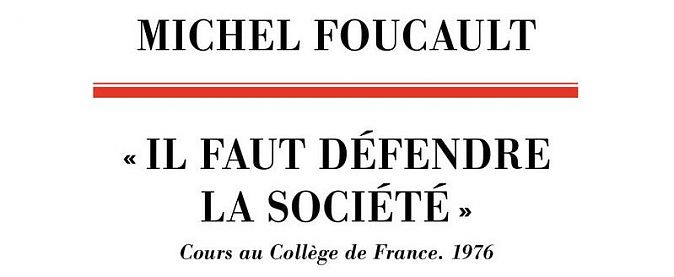|
August 18, 2020 CC BY 4.0 |
print comment |
Keywords: biopower | civil war | history | hobbes | populism | race

Scholarship often overlooks Foucault's 1976 lecture-course, where he illuminates a historical shift from a system of sovereignty to a biopolitical apparatus. Locating discourses in the early modern period that developed or provided historicized codings of social relations, Foucault explores how such discourses contained embedded references to a 'war of the races,' of which a key element was an assertion of the presence of strife or division within the body politic. In particular, Foucault indicates how Thomas Hobbes' juridically-oriented theory countered this discourse of perpetual strife, and how discourses of the French nobiliary reaction furthered it. This article argues that Foucault's understanding of biopower and its emergence from such historical discourses sheds light on the history of nationalism, helping to understand the modern political experience of subjectivity as circumscribed by tensions operating within modern nation-states and also as mobilized towards national objectives.
Sean Gerard Ferrier: "Subjects of History: Foucault on the Emergence of Conflictual Nationhood and Biopolitics," in: Le foucaldien, 6/1 (2020), DOI: 10.16995/lefou.50


